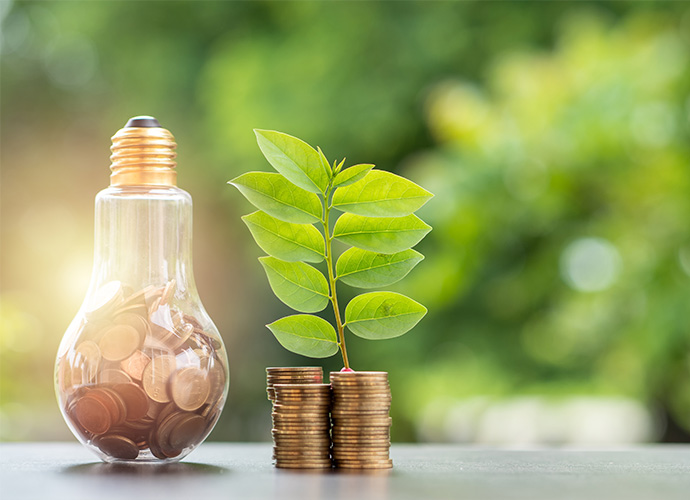As energy prices continue to soar across the UK, many households are feeling the pinch. With the cost of living increasing, it’s more important than ever to be energy-conscious and save money where we can. That’s why we’ve put together 15 top tips to help you save energy and, ultimately, reduce your energy bills. By adopting these eco-friendly practices, you’ll not only be doing your bit for the environment, but you’ll also be keeping more money in your pocket.

1. Insulate Your Home
One of the most effective ways to save energy is to ensure your home is properly insulated. This includes cavity wall insulation, loft insulation, and draught-proofing windows and doors. By doing so, you’ll be able to retain more heat inside your home, reducing the need for heating.
2. Switch to LED Bulbs
LED bulbs consume up to 90% less energy than traditional incandescent bulbs and last significantly longer. Replace your old bulbs with energy-efficient LED ones to save money and energy in the long run.
3. Use Energy-Efficient Appliances
When it’s time to replace appliances, opt for those with an energy-efficient rating. The higher the rating, the less energy the appliance will consume. This can result in significant savings on your energy bills.
4. Unplug Devices When Not in Use
Even when turned off, many devices still consume energy if they’re plugged in. Unplug chargers, electronic devices, and appliances when they’re not in use to prevent unnecessary energy consumption.
5. Maximise Natural Light
Take advantage of natural daylight to reduce the need for artificial lighting. Keep curtains and blinds open during the day and consider using lighter colours in your interior décor to reflect light.
6. Use a Smart Thermostat
Smart thermostats allow you to control your home’s temperature from your smartphone, tablet, or computer. You can set a heating schedule and adjust it remotely, ensuring you’re only heating your home when necessary.
7. Wash Clothes at Lower Temperatures
By washing your clothes at 30°C instead of 40°C, you can save up to 40% of the energy used by your washing machine. Additionally, try to wash full loads, as this is more energy-efficient than washing smaller loads more frequently.
8. Hang Clothes to Dry
Tumble dryers consume a significant amount of energy. Save on your energy bills by hanging your clothes to dry instead. On dry days, take advantage of the outdoor breeze to help your clothes dry faster.
9. Install a Shower Timer
Showers use less water and energy than baths, but long showers can still consume a lot of energy. Installing a shower timer can help you to reduce the time spent in the shower, ultimately saving energy and water.
10. Install Solar Panels
Solar panels allow you to generate your own electricity, reducing your reliance on the grid and lowering your energy bills. Although the initial investment can be high, solar panels typically pay for themselves within a few years through energy savings.
11. Draught-Proof Your Home
Draughts can account for a significant amount of heat loss in your home. Seal gaps around windows, doors, and floorboards to prevent draughts and improve your home’s energy efficiency.
12. Use Energy-Saving Modes on Devices
Many electronic devices have energy-saving modes or settings. Enable these features to reduce the energy consumption of your devices when they’re in use.
13. Turn Down Your Thermostat
By reducing your thermostat by just 1°C, you can save up to 10% on your heating bills. Try wearing warmer clothes indoors and using blankets to stay cosy while keeping your thermostat at a lower temperature.
14. Be Smart About Cooking
When cooking, use the right-sized pan for your hob and keep lids on pots to retain heat, as this will enable you to cook more efficiently. Additionally, consider using a microwave or slow cooker for some meals, as they tend to use less energy than an oven or hob.
15. Monitor Your Energy Usage
Keep track of your energy consumption by taking regular meter readings and comparing them to previous months. This will help you to identify areas where you can save energy and set goals for future savings.
By implementing these 15 tips, you’ll not only reduce your energy consumption and save money on your bills, but you’ll also be doing your part to combat climate change and preserve our planet for future generations. Remember, small changes can make a big difference, so start making these eco-friendly adjustments today and enjoy the benefits of a more sustainable lifestyle.





